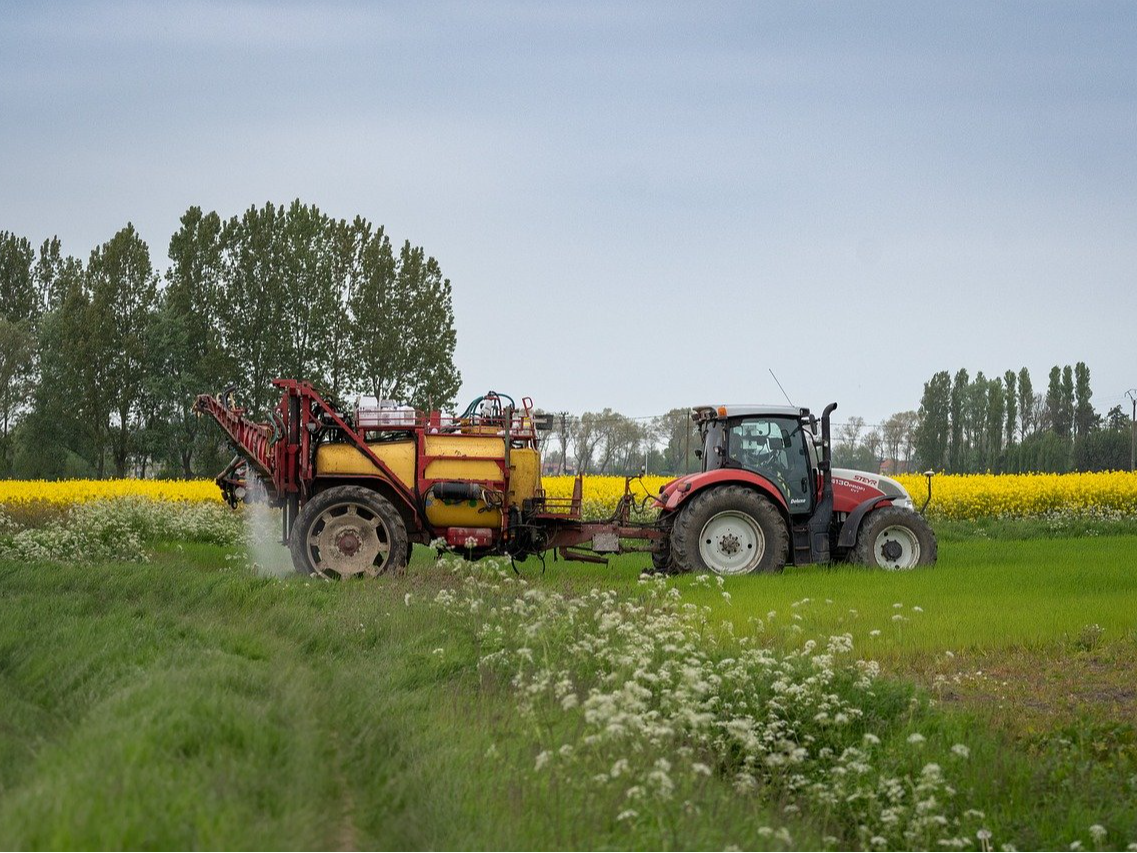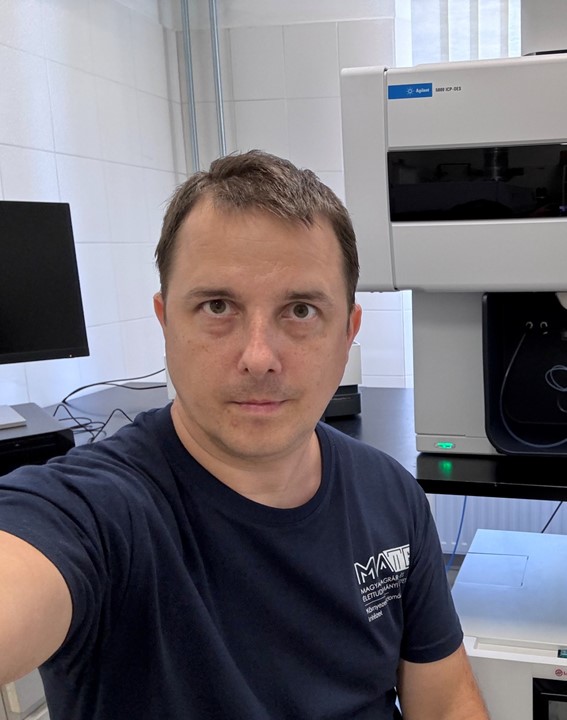Environmental Fate and Ecotoxicity Assessment Research Group - MATE Research
Environmental Fate and Ecotoxicity Assessment Research Group

The “Environmental Fate and Ecotoxicity Assessment” Research Group aims to advance knowledge in the field of environmental sciences by developing and implementing induced fluorescence-based and other instrumental detection methods for environmental safety assessment. It pursues innovative studies of the occurrence, persistence and biological effects of inorganic and inorganic microcontaminants of agricultural or other origin. We use an integrated, interdisciplinary approach to assess environmental and food safety consequences as affected by the target microcontaminants.
The Research Group aims to assess the emergence, environmental fate and ecotoxicity of contaminants jeopardizing the environmental safety of agricultural production. Methodological expansion of the modular set of our previously developed laser-induced fluorescence-based instrument prototypes is applied as a means to carry out specific monitoring and assessment of the target contaminants. Thus, research has been commenced in three directions: (a) expansion of the range of analytes of our laser-fluorescence instruments; (b) assessment the dissipation and (eco)toxicity of agricultural pollutants, and subsequent development of a database for the environmental assessment of agrochemicals; and (c) detection of organic microcontaminants, potentially toxic elements, and technological pollutants during waste management facilitating conversion to circular economy.
The project will enable us to develop novel enzyme-linked fluorescent immunoassay methods optimized for aquatic media for several target analytes including pharmaceuticals (carbamazepine or sulfonamides, etc.), pesticides (e.g. neonicotinoids; bioinsecticide ivermectin, etc.) or other organic microcontaminants. The advancement in instrumentation will make immunoassay performance possible in ultra-low test volumes allowing monitoring target analytes in biological samples of rather limited availability. The analytical sensitivity of the methods will facilitate following the fate of the target analytes in environmental (e.g., surface water, soil, biological tissue) and technological (e.g., composting biomass) matrices.
Leader
 |
Prof. Dr. András Székács
Institute of Environmental Sciences
University Professor
Research keywords: pesticides, mycotoxins, organic microcontaminants, environmental safety, genetically modified (gm) plants
|
Members
 |
Dr. László Aleksza
Institute of Environmental Sciences
Associate Professor
Research keywords: waste management, composting technologies, environmental biotechnologies, biogas production, dry fermentation
|
 |
Dr. Márk Horváth
Institute of Environmental Sciences
Associate Professor
Research keywords: environmental analysis, instrumental analysis, fractionation, validation, icp-oes
|
 |
Dr. Szandra Klátyik
Institute of Environmental Sciences
Research Fellow
Research keywords: ecotoxicology, pesticides, toxicology, terrestrial ecotoxicology, aquatic ecotoxicology, environmental fate of pollutants, environmental monitoring, food safety
|
 |
Dr. Mária Mörtl
Institute of Environmental Sciences
Senior Research Fellow
Research keywords: pesticides, mycotoxins, gas and liquid chromatography, sample preparation, guttation liquid
|
 |
Dr. Anikó Seres
Institute for Wildlife Management and Nature Conservation
Associate Professor
Research keywords: ecotoxicology, soil ecology, decomposition, mesofauna, zoology
|
 |
Dr. Eszter Takács
Institute of Environmental Sciences
Senior Research Fellow
Research keywords: environmental analysis, environmental safety, aquatic ecotoxicology, pesticide, mycotoxin, acute and chronic toxicity, immunoassay, monitoring, environmental fate, risk assessment, fluorescence
|
Selected publications resulted from the project
Inotai, K., Bata‑Vidács, I., Tóth, Á., Kosztik, J., Varga, M., Szekeres, A., Nagy, I., Nagy, I., Dobolyi, Cs., Mörtl, M., Székács, A., Kukolya, J. (2024) Glass bead system to study mycotoxin production of Aspergillus spp. on corn and rice starches. Appl. Microbiol. Biotechnol., 108: 348. doi: 10.1007/s00253-024-13190-7, Q1
Fekete, Gy., Sebők, A., Klátyik, Sz., Varga, Zs. I., Grósz, J., Czinkota, I., Székács, A., Aleksza, L. (2024) Comparative analysis of laboratory-based and spectroscopic methods used to estimate the algal density of Chlorella vulgaris. Microorganisms, 12 (6): 1050. doi: 10.3390/microorganisms12061050, Q2
Varga, Zs.I., Shahzad, S., Ramay, M.W., Damak, M., Gulyás, M., Béres, A., Gyuricza, Cs., Székács, A., Aleksza, L. (2024) Ammonia and greenhouse gas emissions from organic manure composting: The effect of membrane cover. Agronomy, 14 (7): 1471. doi: 10.3390/agronomy14071471, Q1

